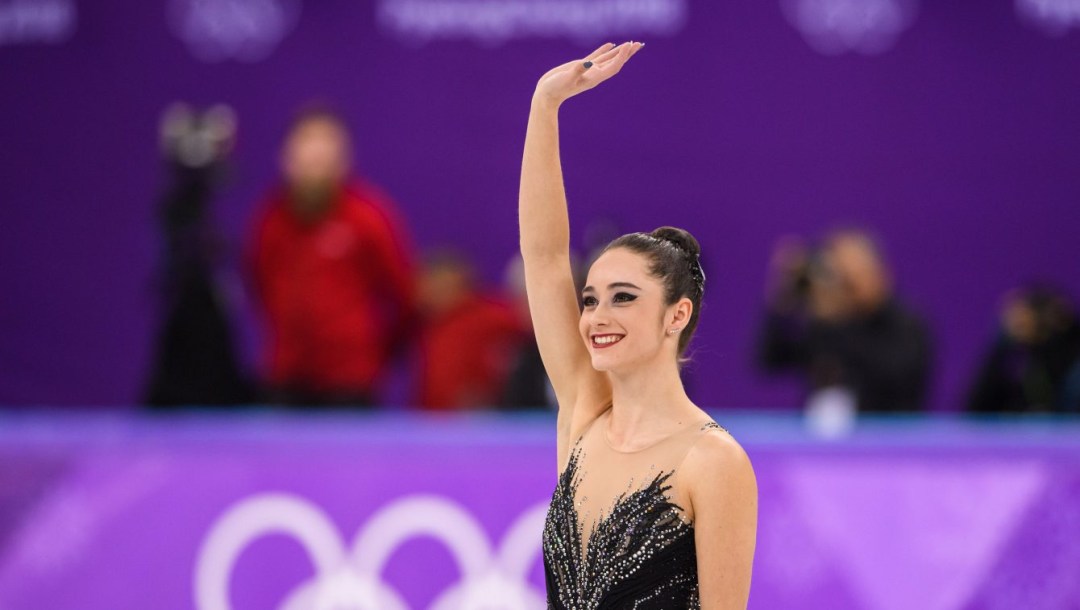Osmond performs on the biggest stage to claim Olympic bronze
In the moments after she won Olympic bronze, Kaetlyn Osmond was asked to look back to when she missed the entire 2014-15 season with a broken ankle that required two surgeries.
“It feels like forever ago,” she said. “And to think that I almost hung up my skates then and called it quits, it’s amazing. But I don’t think I would have been able to perform the way I did today without that injury. I regrouped and almost became a new person afterwards.”
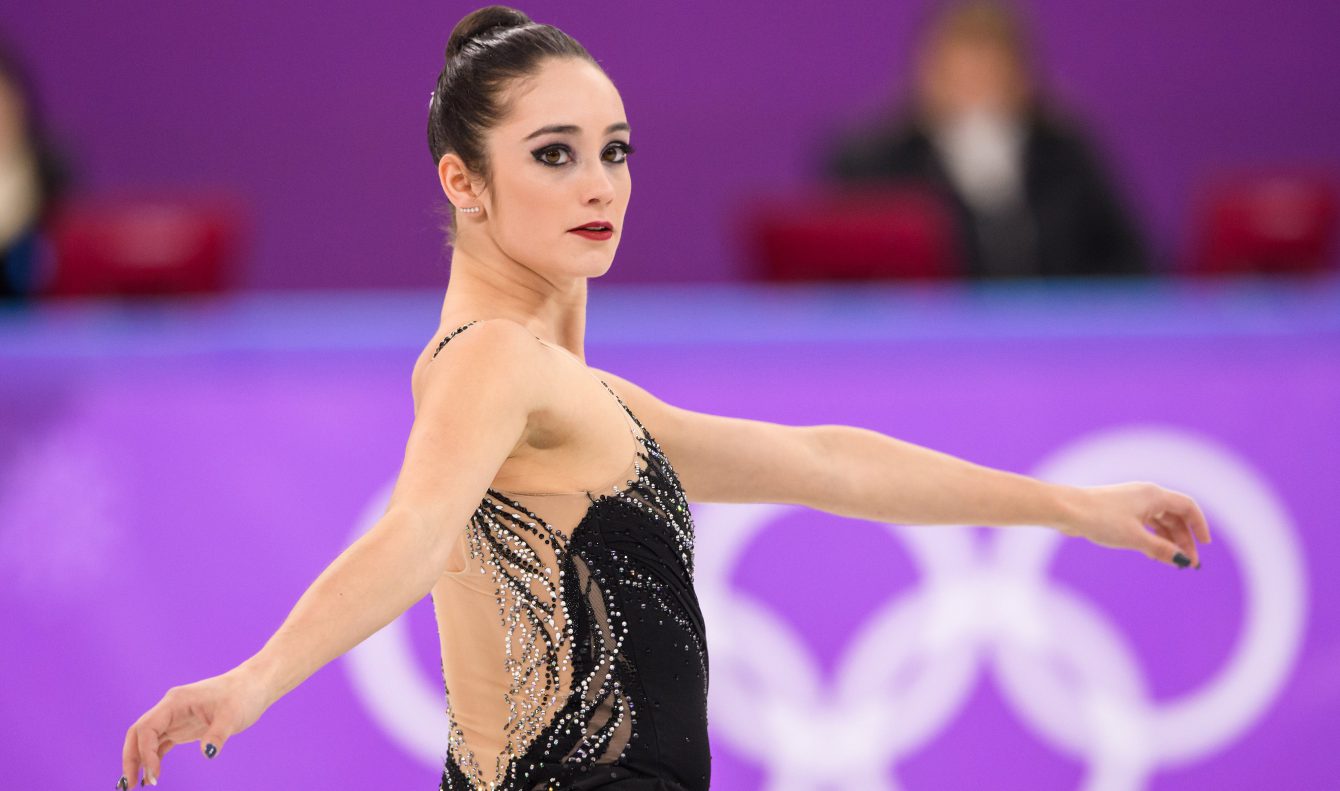
Kaetlyn Osmond competes in the Ladies Single Free Skating at the 2018 Winter Olympic Games at Gangneung Ice Arena on February 23, 2018 in Pyeongchang-gun, South Korea (Photo by Vincent Ethier/COC)
That new person landed all seven of her planned triple jumps, earning personal bests for both her free skate and overall total score. She also captivated the crowd for the four minutes she was on the ice, embodying the darkness and drama of the Black Swan soundtrack.
“I had to mature. I had to refocus on how to stay on the ice and feel strong and I don’t think I would have been able to perform this choreography as good as I could without that experience,” Osmond said of her two tough years.
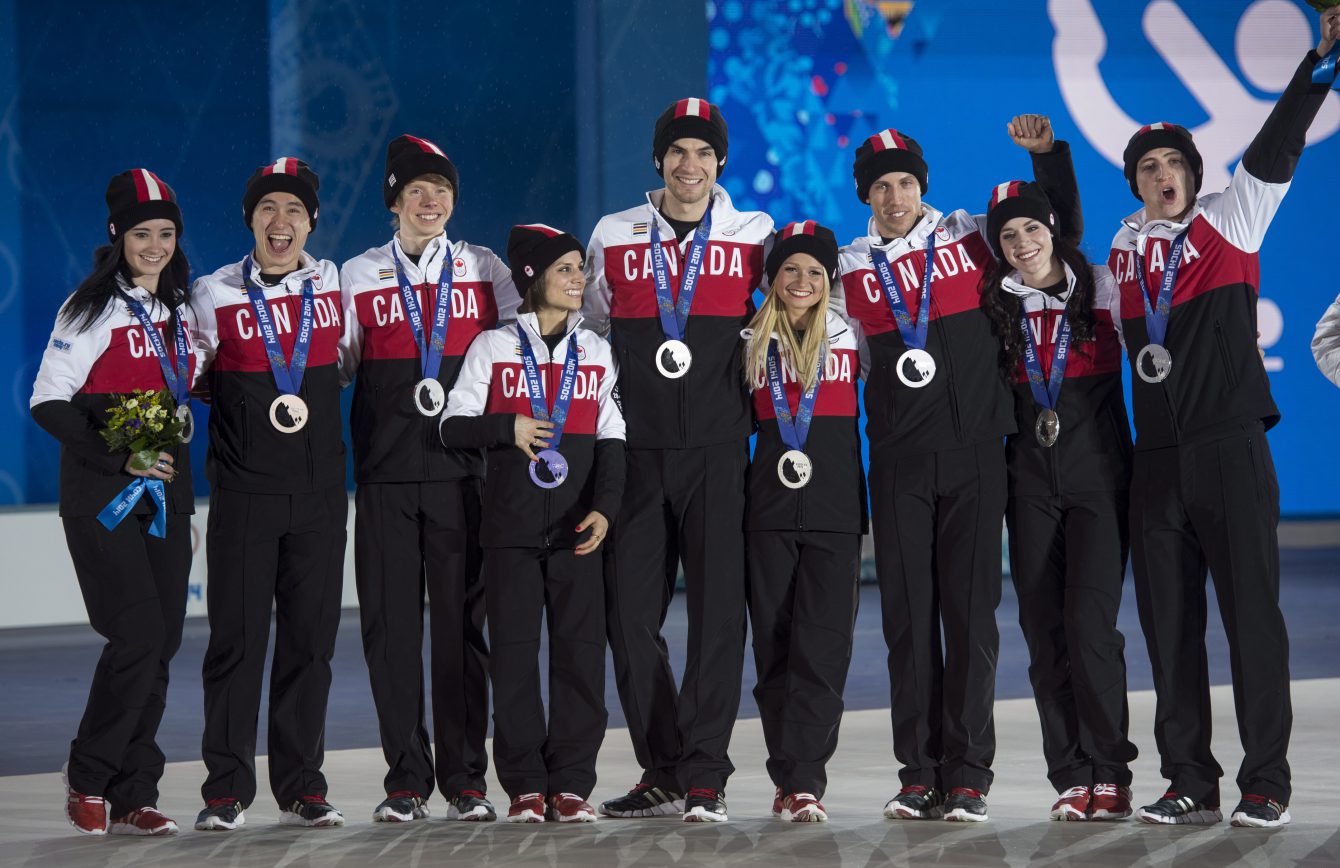
Kaetlyn Osmond, left to right, Patrick Chan, Kevin Reynolds, Meagan Duhamel, Eric Radford, Kirsten Moore-Towers, Dylan Moscovitch, Tessa Virtue and Scott Moir, members of the Canadian team pose for a photograph after receiving their silver medal for the figure skating team competition during medal ceremonies at the Sochi Winter Olympics Monday, February 10, 2014 in Sochi. THE CANADIAN PRESS/Paul Chiasson
At Sochi 2014, Osmond was the least experienced member of the squad that won silver in the first Olympic team event. Having finished eighth in her world championship debut the year prior, she was seen as a bright light for the future of Canadian women’s skating. But then the ankle injury happened, a freak accident in training when she swerved to avoid another skater. Though she returned to competition in 2015-16, it did not go smoothly and she missed qualifying for the world championships.
But last season, the potential she had shown finally came to fruition, capped by a silver medal at the world championships.
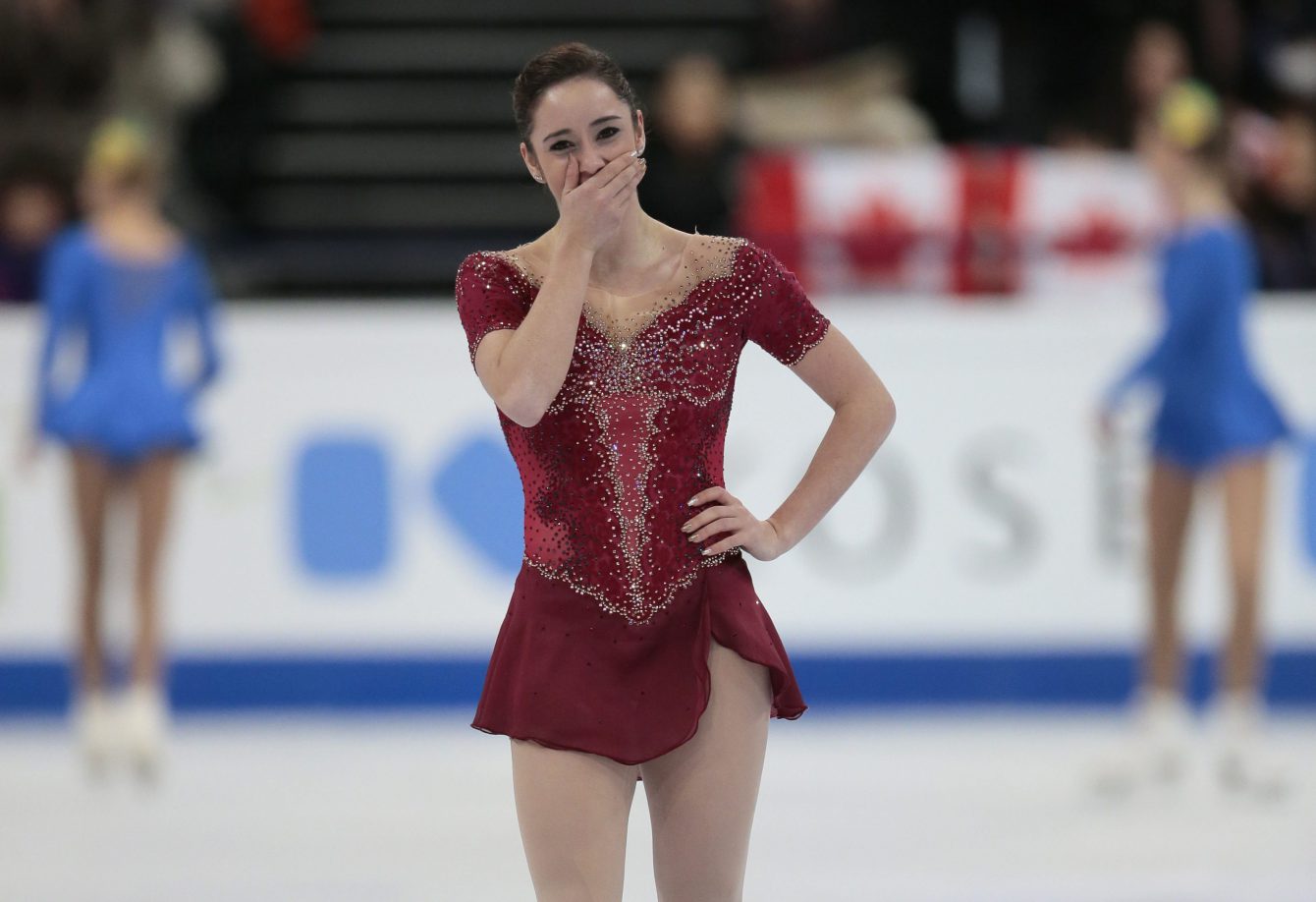
Kaetlyn Osmond, of Canada, reacts after her free program at the world figure skating championships in Helsinki, Finland, on Friday, March 31, 2017. (AP Photo/Ivan Sekretarev)
Both then and now, her Edith Piaf short program had been her rock. But the version of Black Swan that she wanted to showcase for judges and fans was only ever witnessed in practice by coach Ravi Walia.
“She actually hasn’t had a bad long program, it’s always been fairly decent, but she struggled to get to the place where she could skate a clean long program which she needed to do to get to this level,” a proud Walia said. “I always believed that she could do it and I just kept believing she would do it here.”
The last three times Osmond competed her free skate, it was the triple loop that tripped her up, even though Walia says it may actually be her strongest triple. It’s the one she didn’t have in Sochi, learning it only after the ankle injury.
For both coach and skater, landing the loop was the turning point in her bronze medal performance.
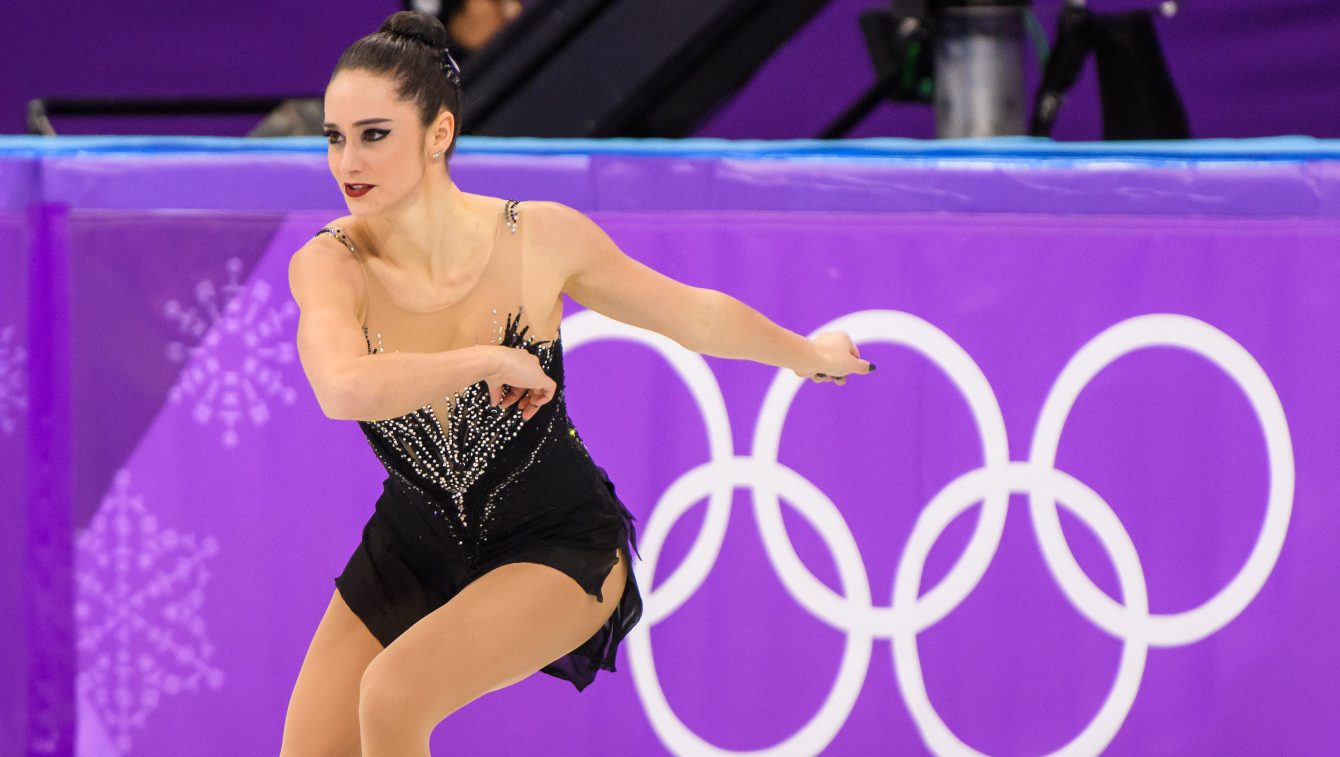
PYEONGCHANG, SOUTH KOREA – FEBRUARY 23: Kaetlyn Osmond competes in the Ladies Single Free Skating at the 2018 Winter Olympic Games at Gangneung Ice Arena on February 23, 2018 in Pyeongchang-gun, South Korea (Photo by Vincent Ethier/COC)
“For some reason, she’s really struggled with it all season in the program. So even with a clean opening, she would still then have trouble with that jump, so once she did that, I knew it was gonna be good,” said Walia.
“I did do a little mental jump in my head the minute that I landed it. I was going into that jump and I wasn’t going to let it be a mistake. I was ready for it and I did it,” said Osmond.
But after that momentary celebration, her training kicked back in.
“When I was going around the corner into my flip I just thought, I’m like ‘okay stay focused and do this’,” she said. “I was managing to stay in the zone. Knowing me, an axel mistake at the end would have been a thing so I just had to remind myself to stay in my feet.”
When her music ended, Osmond went from her ending pose to her knees, staying there for a long time as she tried to enjoy every second of what she was feeling.
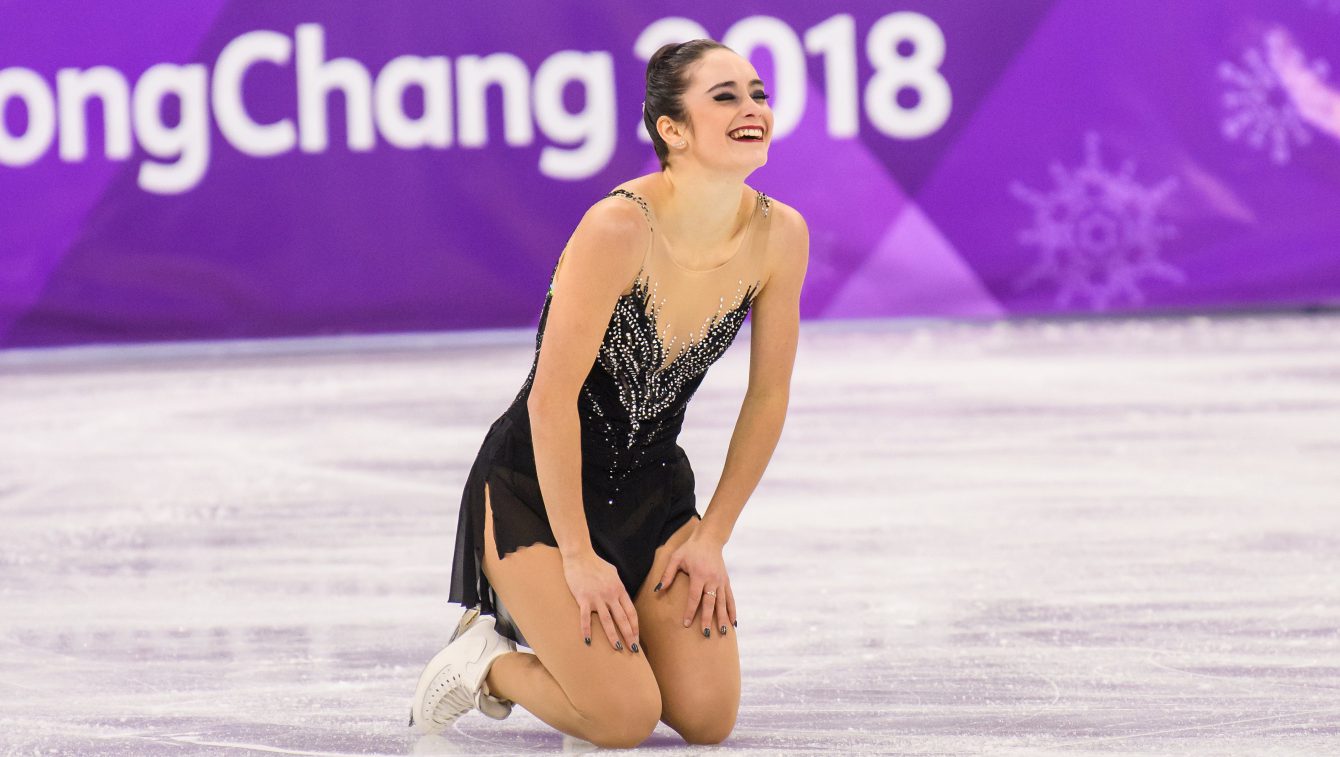
Kaetlyn Osmond competes in the Ladies Single Free Skating at the 2018 Winter Olympic Games at Gangneung Ice Arena on February 23, 2018 in Pyeongchang-gun, South Korea (Photo by Vincent Ethier/COC)
“That program means so much to me. I was excited from the moment we picked the music and started the choreography and it’s been bugging me the entire time that I wasn’t able to put out a clean program and show everyone why I love this program. So the whole ending of my program I was just loving every single minute of it.”
For a skater who was born in Newfoundland before moving to Montreal and later Edmonton for training, the Olympic Games had never been a lifelong dream as it is for many athletes. Standing on an Olympic podium was something she never envisioned for herself.
“I remember watching Joannie Rochette, back in 2010 when she made the podium, and I said that was incredible, that it was something I’m never going to be able to do. So, it amazed me four years later when I was at the Olympics itself and I came 13th. And my goal here was to just improve on that 13th-place finish. But when I heard that I came third I just reminded myself that was something I thought I never would be able to do so it was really exciting.”

